This World Water Day, March 22, we join the global community in recognizing the importance of water, one of the planet’s most precious — and vital — resources. Every day we are confronted with the weight of this priceless reserve, working alongside those for whom its worth extends well beyond the tap.
Water is not only a source of life for the world’s smallholder farmers — but livelihood. Whether it flows from a stream, falls from the sky or is pulled from the groundwater reservoir hidden beneath the Earth’s surface, water is the foundation on which farmers everywhere grow food, raise animals, earn income and keep their families healthy — surviving on it in more ways than one.
Today, we highlight the real value of this critical resource, through the experiences of farmers themselves.
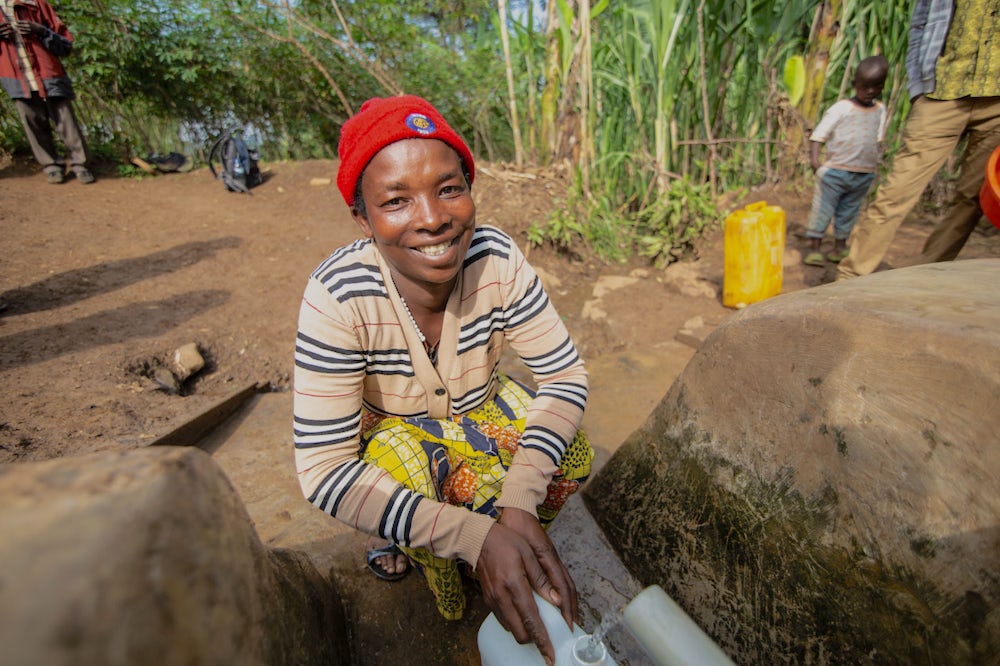
Martha Tuyisabe collects water from a tap her agricultural cooperative built in their community in Rwanda. Local, communal sources of clean water provide many farming families with the supply they need for drinking, cooking and cleaning, and can save women and children long hours of walking to collect it from faraway sources.
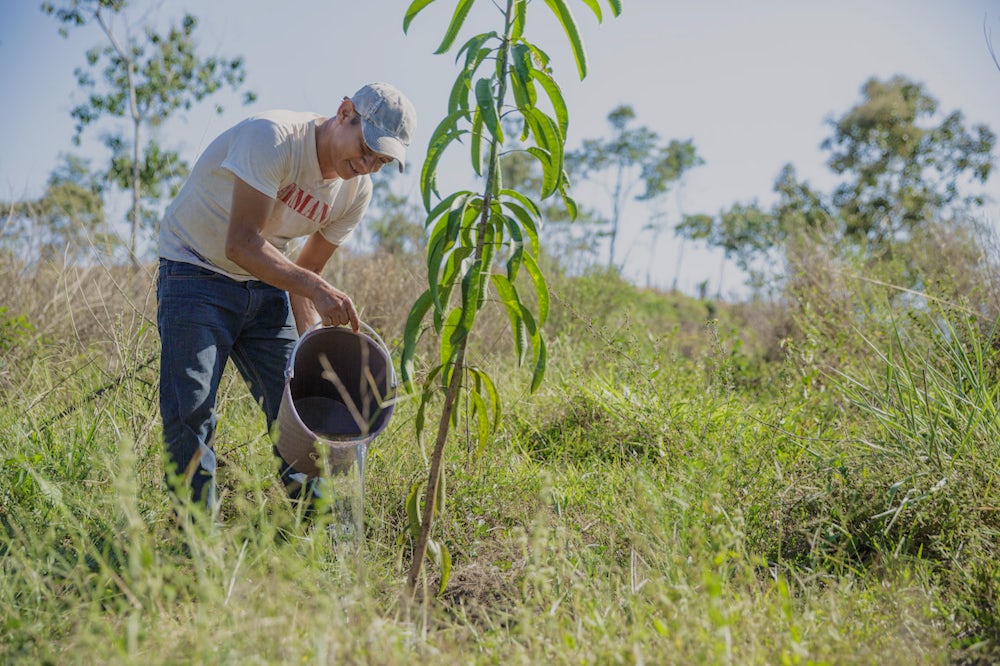
Rudy Lopez Carrillo waters a young mango tree in rural Mexico, tending to it so it will bear fruit he can sell for income. Farmers depend on the money earned from crops to meet their needs and invest in their businesses — but they can’t do it without enough water to grow bountiful crops.
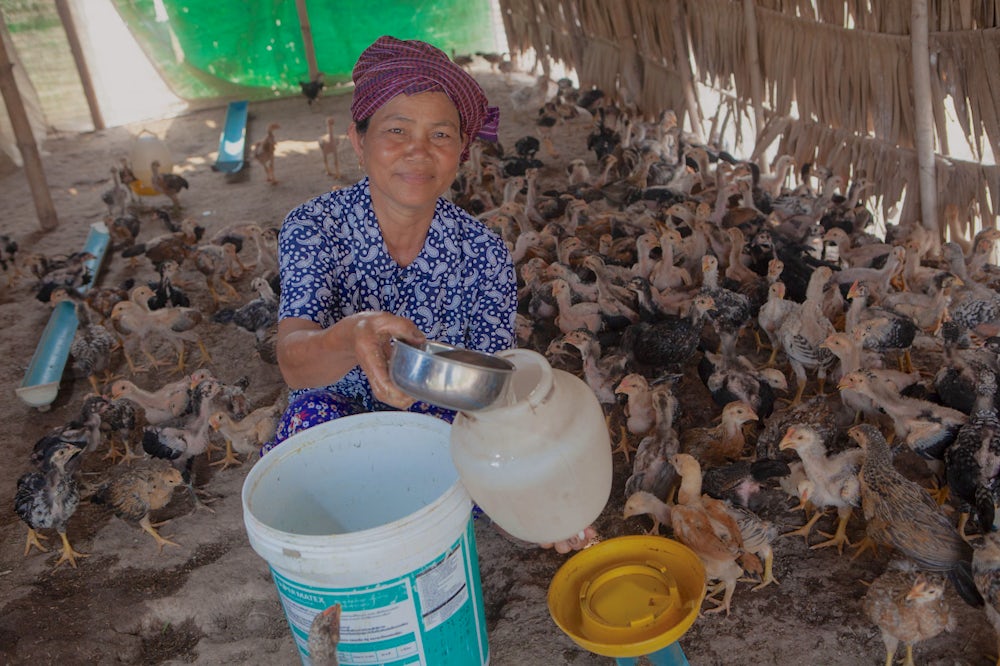
Fresh water is equally important for farmers who raise animals for a living, like Men Ein, pictured here changing the water in her chicken coop in Cambodia. Healthy animals are more productive — laying more eggs, producing more milk — meaning more income in the pockets of farmers who care for them.
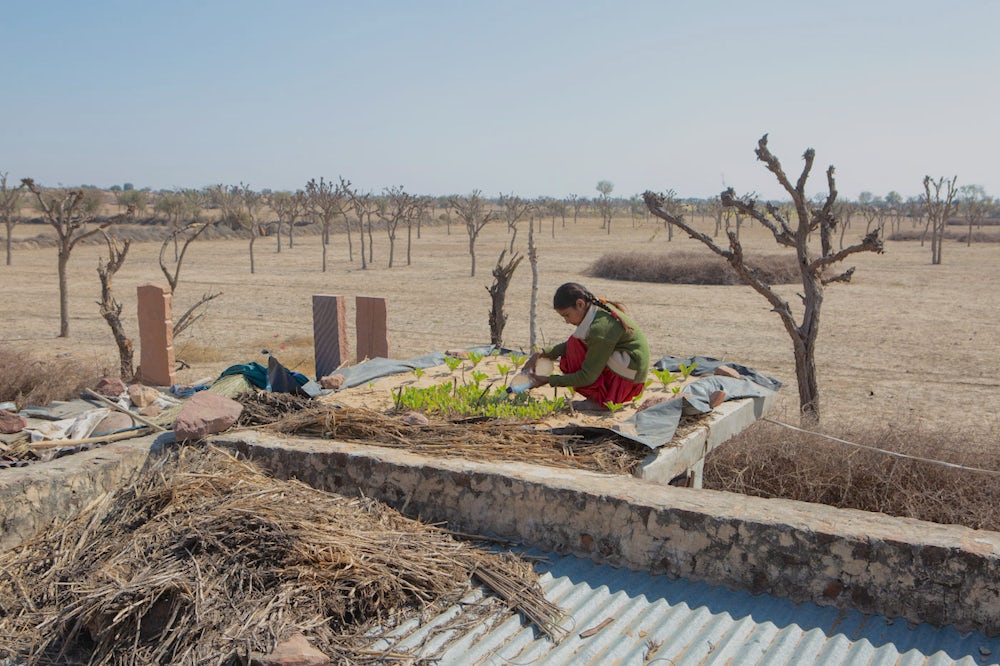
Most smallholder farmers don’t just grow the crops they sell, they also grow the crops they eat. Kitchen gardens, like the one 7-year-old Kesar waters here on her family’s rooftop in India, are a primary source of vegetables and produce for farming families — and water is what transforms the food from seed to plate.
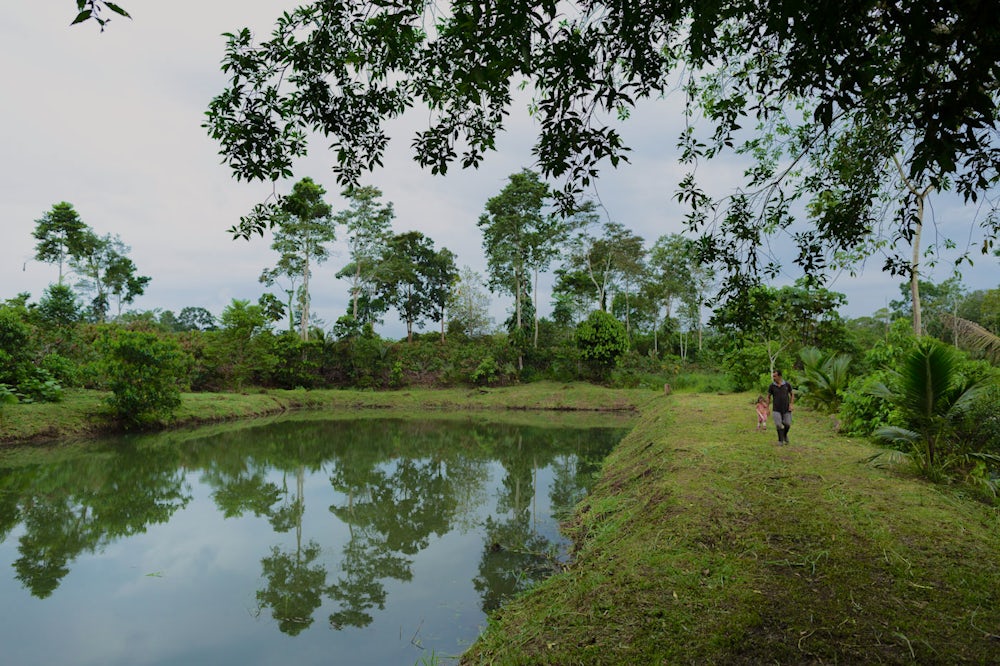
For some farmers like Roberth Hernán Andrade Álvarez, water is the farm. Roberth’s fish pond in Ecuador is an important source of income for his family, including 2-year-old Lina, pictured here walking with her father on the pond’s perimeter.
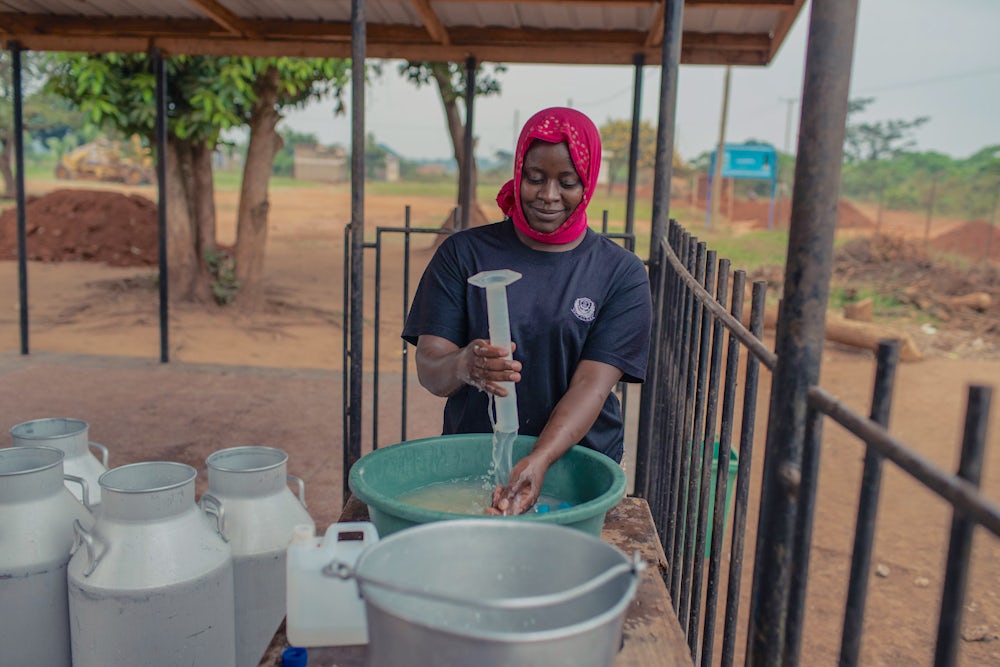
Water also plays a central role in preventing disease and contamination at farms and agribusinesses, which has a direct impact on farmers’ ability to earn income for their products. Clean equipment at this milk collection center in Uganda keeps milk quality consistent and its value high, benefitting farmers and consumers alike.
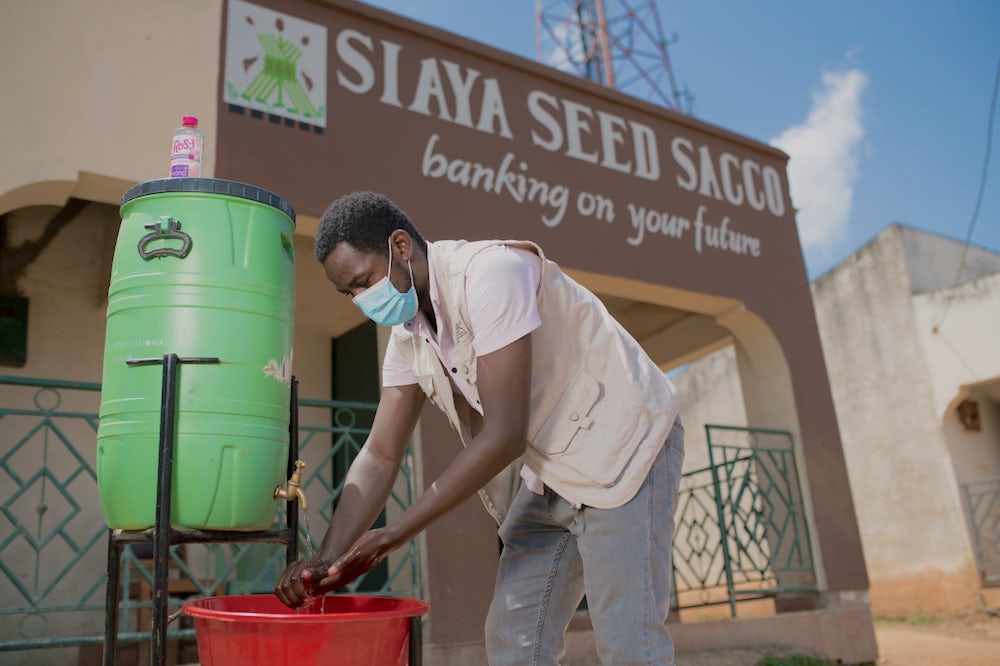
Water has been a critical tool to keep the doors of agribusinesses open during the COVID-19 pandemic. Hand-washing stations like this one outside a farmers’ cooperative in Siaya County, Kenya have enabled farmers to safely continue their work supporting their families and producing food for their communities.